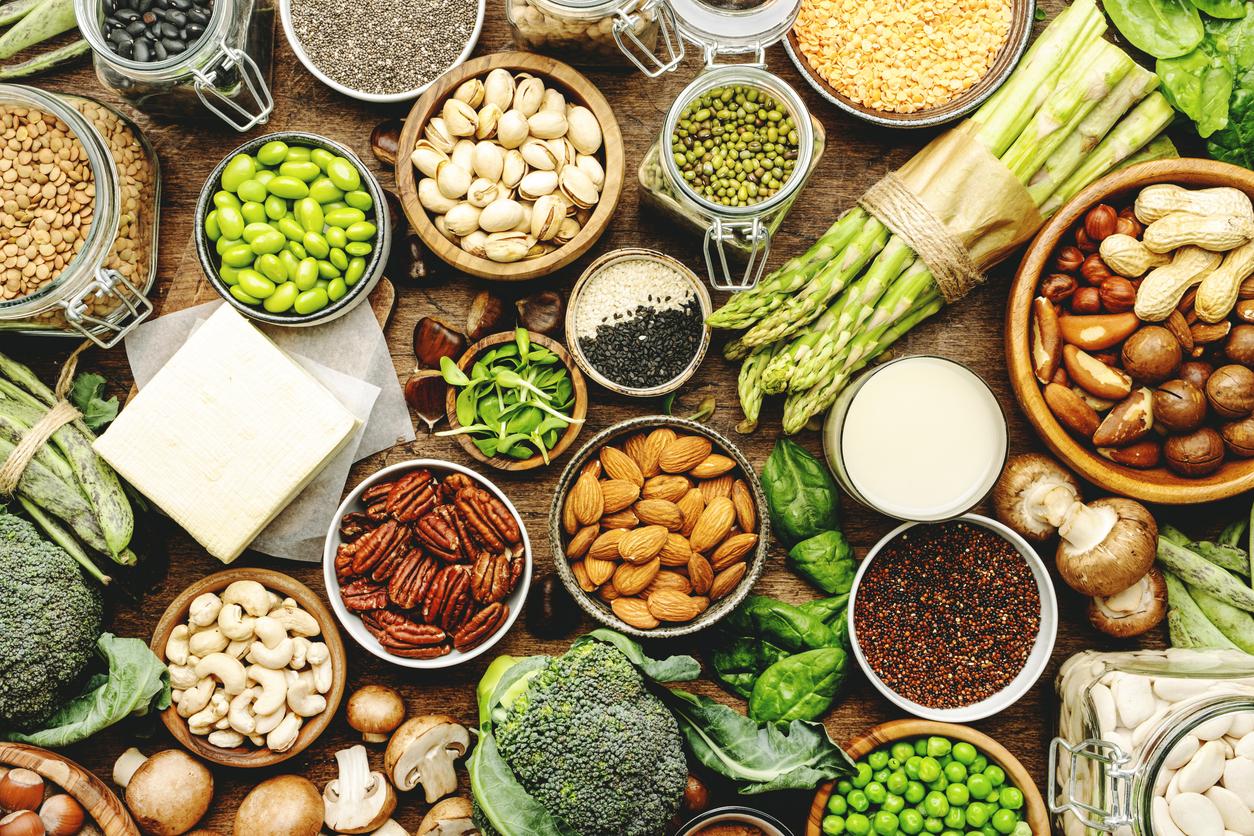
A feeling of satiety for longer
Popular diet gurus like Dr. Frank preach a high-protein diet as a miracle cure for rapid weight loss. Why actually?
Egg whites or proteins are an important nutrient. Our entire body is built with the help of proteins – an adult consists of up to 12 kilos of protein. We need protein every day, for the metabolism and to supplement what we lose through, for example, skin flakes, hair and faeces.
That daily portion protein we get through our diet. The body then makes proteins of its own from these dietary proteins. According to the World Health Organization (WHO), you need at least 0.8 grams of protein per kilogram of body weight every day. For someone who weighs 70 kilos, this is 56 grams per day. This is usually easy, because a portion of chicken fillet already provides 31 grams of protein, and a cup of buttermilk 8 grams. But in some cases extra attention is needed.
Success with scientific diet
Proteins are good food for those who want to lose weight. Researchers from Maastricht University have investigated this, together with scientists from seven other European universities. Foods with a lot of protein and a low glycemic index appears to work best for weight maintenance.
A low glycemic index means that the diet carbohydrates that are slowly absorbed by the body. This makes you feel full for a long time. So no ‘fast’ sugars, such as white bread, rice and biscuits, but whole grains, vegetables and legumes. This diet allowed the subjects to lose weight without counting calories. The proteins in the successful diet mainly came from lean meat, low-fat dairy products and legumes.
feeling satiated
Proteins are quite difficult to digest, which is why they make you feel full for longer. Compare it to fuel for a fire. Sugars burn as fast as newsprint. Fats stoke the fire as if there were blocks of wood on it. And proteins? You can compare them to glowing coals. They burn for a long time, so provide long satiety, and because they radiate a lot of heat, some of the calories in proteins leave the body as heat.
This slimming effect of proteins is actually nothing new under the sun. The famous American cardiologist and diet guru Dr Atkins already in the seventies that we should eat a lot of chicken and cheese and especially no carbohydrates such as bread and potatoes. And promote in our country Dr Frank the high-protein diet. Protein-rich slimming shakes are also popular.
There is only one ‘but’: these popular weight loss methods are very strict and very different from what we are used to. Eating no bread, pasta or potatoes at all is difficult to sustain. It is therefore smarter (and also tastier) to follow the advice of the nutrition researchers at Maastricht University: choose normal food with extra attention for proteins and foods with a low glycemic index.
Good for the muscles
Proteins have an additional advantage: they are important for the muscle building. Bodybuilders have known that for a long time, some of them start the day with about eight beaten eggs and eat a whole chicken for lunch. Why is it important for weight loss? More muscle tissue makes your body look more toned. Moreover, muscle tissue (even at rest!) consumes more calories than fat tissue.
Strength athletes need 1.7 to 1.8 grams of protein per kilogram of body weight every day; more than double what is normally recommended! It doesn’t have to be that extreme, of course, but the fact is that proteins are indispensable for muscle building. There is a catch: you only build muscles if you put them to work. So there is no point in sitting on the couch drinking protein shakes and waiting until you are lean and muscular. But anyone who steels their muscles and feeds them with protein will be amply rewarded: more strength and energy, a better figure and a higher metabolism.
|
What are proteins?
Proteins consist of loose amino acids, which are connected to each other like a kind of beaded necklace. There are 22 different types. During digestion in the body, those strings of beads are cut loose, so that eventually the loose amino acids remain. The body then ‘threads’ proteins for the body cells, such as muscles and cells blood. Each protein is unique, thousands of combinations of amino acids are possible. Of the 22 amino acids, the body can make 13 itself. The other 9 we have to get through food. These are the so-called essential amino acids. They are mainly found in animal products. |

Sources):
- Plus Magazine














